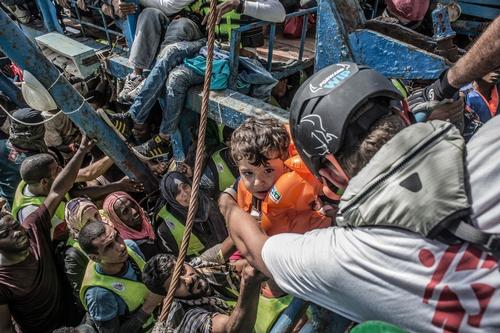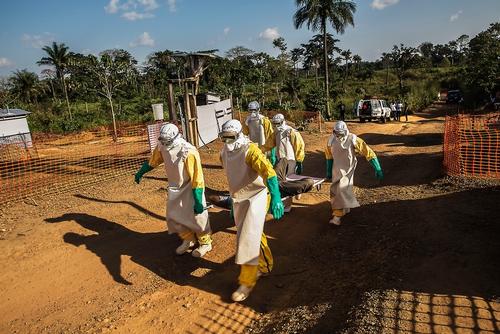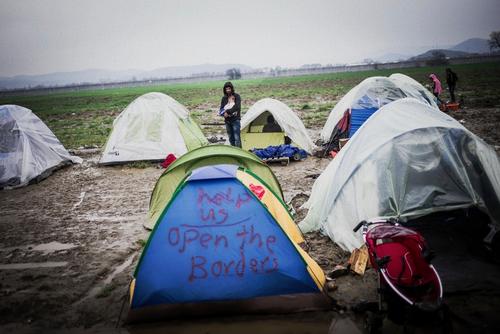The summit in Italy must also tackle key global health issues such as medical innovation and drug-resistant infections.
Ahead of the G7 summit this weekend in Taormina, Italy, the international medical-humanitarian organisation Médecins Sans Frontières urges G7 leaders to make a bold commitment to humane and long-term migration policies. Several global health issues will also be on the G7 agenda, and MSF calls on the summit to address the issues of unaffordable medicine prices and the lack of research and development undertaken to combat drug-resistant infections and other patient needs.
Faced with the largest displacement crisis the world has known since World War II, an increasing number of governments are taking short-sighted and restrictive measures based on repression, detention, push-back or futile attempts to deter. These policies have resulted in a huge amount of human suffering for those in transit, with many encountering violence of every imaginable form, without the access to legal asylum or the international protection they desperately need.
“We witness the impact of these policies first-hand through our work in a wide range of situations, from the survivors of Syria’s devastating conflict and detention centres in Libya, to the extreme level of violence on the Central American migration and refugee route,” said Dr Joanne Liu, International President of MSF. “The rising deaths at sea, the physical and administrative border walls, the abysmal reception or detention conditions and eventual refoulement should be viewed by G7 countries as a humanitarian failure on their watch.”
Concrete measures must be taken to implement humane policies towards migrants and refugees: safe and legal channels to seek protection; safe and humane reception conditions in countries of destination and transit; early detection of vulnerabilities; and the implementation of a dedicated search and rescue system in the Mediterranean that seeks to save lives not prevent arrivals to Europe.
MSF is particularly concerned by the growing number of deals outsourcing migration management to – often unsafe – third countries that place the very concepts of refugee and protection in danger. Among the latest examples are the deal between the European Union and Turkey and the cynical Italy-Libya deal that supports the interception of migrants at sea by Libyan coastguards. Those migrants are prevented from seeking protection and pushed back to widely known and accepted violence, torture and inhumane detention conditions in Libya.
On 23 May, during a migrant rescue on the Mediterranean managed by a number of NGOs, Libyan coastguards intimidated passengers of the distressed boats and fired gunshots into the air, threatening people’s lives.
“This is just one example that shows Libyan coastguards cannot be part of the solution,” said Loris De Filippi, President of MSF Italy. “Europe’s strategy to externalise the management of migration entry points across the sea to Libya is nothing short of complicity with torture, abuses of human rights and condemning people to suffering or death.”
Access to Medicines and Antimicrobial Resistance (AMR)
High medicine prices are affecting all countries. Today, across the G7, countries are struggling to pay for new medicines to treat hepatitis C. At the same time, the current system of research and development fails to meet critical public health needs, including the development of new drugs and diagnostics to address drug-resistant infections which must be affordable for people who need them. Drug-resistant infections are a serious and growing health problem, with drug-resistant tuberculosis claiming one third of all lives lost to such infections globally in 2015.
G7 governments should also set out new approaches for medical research and development that end the reliance on high prices to pay for innovation, ensure public return on investment, make products affordable, share data and knowledge and prioritise people’s health needs. The G7 should take urgent steps in their own countries and beyond to address the epidemic of high prices that is negatively impacting patients around the world.
“Every day, MSF doctors are confronted with a lack of effective treatments to cure diseases such as drug-resistant tuberculosis,” said Dr Els Torreele, Executive Director of MSF’s Access Campaign. “The need for medical innovation is urgent, but products need to be affordable and easy to use in the health systems where people are cared for. Today's system of pharmaceutical research – based on patent monopolies and high prices – is failing all of us by not effectively addressing drug-resistant infections, global epidemics such as hepatitis C or epidemic outbreaks like Ebola, as well as a range of non-communicable diseases.”






